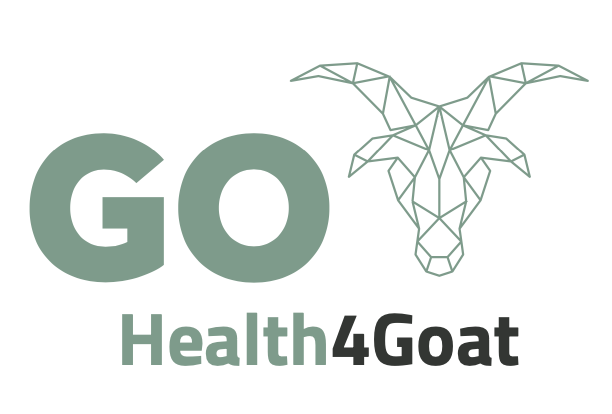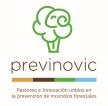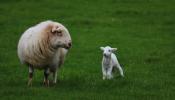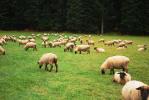
HEALTH4GOAT Operational Group: Development of an AI tool to monitor the use of natural therapeutic alternatives to optimize goat dairy production in Andalusia
- Type Operational group
- Status In progress
- Execution 2023 -2025
- Assigned Budget 273.965,00 €
- Scope Autonómico
- Autonomous community Andalucía
- Project website GO HEALTH4GOAT
Development of new phytogenics: -Production of plant extracts and isolation of bioactive substances from plants. A methodology will be developed to obtain plant extracts rich in bioactive compounds from the various plant biomasses considered in the project. Furthermore, a second strategy for obtaining the highest added-value compounds is to develop and optimize a method for fractionating the crude extracts to isolate the most important bioactive compounds.
Finally, using innovative in vitro evaluation methodologies in ruminant cell cultures, we will select those products with the best functional properties, such as immunomodulatory, anti-inflammatory, anti-methanogenic, or heat stress resistance properties. We will develop methods for the preservation, application, and protection of phytogenic products based on microencapsulation technologies. Most commercial products claim to contain a minimum concentration, and not only do most of them fail to reach this concentration, but in many cases, the claimed bioactivity is no longer present.
In an attempt to address this problem associated with these bioactive ingredients in liquid media, work will be done on stabilization and preservation through the design and development of encapsulated formats made from biopolymers and coating materials that are safe and provide a nutraceutical benefit. Therefore, the aim is to explore the potential of this strategy to reduce the impact of the ruminal microbiome on the nutrients and active compounds considered in the project.
Comprehensive analysis, monitoring, and automatic control of environmental and animal nutrition data for data collection, which will be evaluated by artificial intelligence. Individualized data will be captured continuously on each farm using the PAM tool. The data will then be integrated into the tool itself and displayed in a user-friendly manner in a dedicated module within the current tool called "Environmental Quality." Likewise, new parameters related to milk quality and animal health, such as "ketone bodies," will be included, gathering this information alongside the other milk quality parameters currently collected by the tool.
This information will be captured from interprofessional laboratory services for milk quality analysis. - Design and development of AI algorithm systems capable of autonomously managing the use of medicinal plants. Creation of new AI algorithms with the incorporated parameters, such that the evaluation of the values of the evaluated parameters (temperature, HD, and ketone bodies) is automated according to standard ranges codified by the user according to production characteristics. - Implementation of a notification system that generates communication between tool users regarding the newly integrated data. Correct decision-making on the farm in a timely manner to avoid economic losses related to the evaluated aspects will be implemented through an electronic notification system that will allow for early correction of detected problems.
To investigate the incidence of pathogens and the antibiotic resistance profile in goat milk samples. Microbiological analysis of goat milk samples from participating farms will be performed to isolate potential pathogens and study the evolution of their resistance. General and selective culture media will be used to isolate and quantify microbial groups of interest to goats, such as coagulase-positive and -negative staphylococci, streptococci, enterococci, enterobacteria, Pseudomonas spp., yeasts, mycoplasmas, and other less common microorganisms such as Mycoplasma, Pasteurella, and Prototheca spp. This study will monitor the circulation of pathogens that cause caprine mastitis in each of the participating farms and study their susceptibility to antibiotics of clinical interest. Finally, the possible correlation between the use of phytogenic-based diets and possible patterns of reduction in the incidence of multidrug resistance will be investigated.
Following the literature review, the farms where the studies will be conducted will be selected to determine the effect of the selected phytogenics. In parallel, the software application will be developed, expanding an existing tool, PAM (PRECISION ANIMAL MILKING), but also including new parameters that will be determined in this project, and developing a notification system. This system, fed with data from samples taken from four farms (with different farrowing quarters over time), will allow us to determine the most optimal phytogenic for each case, thus improving animal quality of life and reducing antimicrobial use.
Andalusia is the leading producer of goat's milk, with more than 156 million liters, representing 46% of the national total. It also has more than 2,200 farmers and is the autonomous community with the greatest diversity of native breeds, a total of 29, of which four are world-renowned high-production breeds. Regarding production, dairy goats stand out over meat goats.
This is a sector that offers significant benefits, both economically, socially, environmentally, and for consumer health, as goat milk stands out for its nutritional and functional values. Therefore, it is important to improve the quality of life of goats in order to increase production and enhance the quality of the milk they produce, thereby reversing the impact not only on consumers but also on farmers.
This GO was created with the aim of helping improve the Andalusian goat sector. Innovation is essential for consumers to value and consume its products and to focus industrial activities on greater production efficiency and animal health.
The main objective of GO-HEALTH4GOAT is the development of a computer tool (Reinforcement Learning algorithms) that allows for objective recommendations on the application of phytotherapy for animal health and welfare, productivity and milk quality, and that, in turn, allows for a reduction in the use of antimicrobials in dairy goat farms in Andalusia.
- Coordinator/entity name: DCOOP Andalusian Cooperative Society
- Postal address: Ctra. de Córdoba s/n, 29200, Antequera, Málaga
- Coordinator/entity email: silvia.lopez@dcoop.es
- Telephone: 952841451
- DCOOP Sociedad Cooperativa Andaluza
- DMC (jgmadero@dmcrc.com)
- BOALVET (hola@boalvet.ai)
- CICAP (bplazuelo@cicap.es)
- DCOOP Sociedad Cooperativa Andaluza






